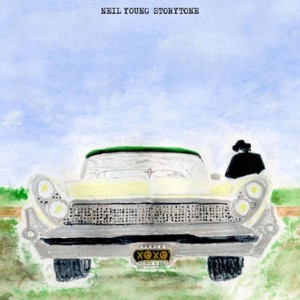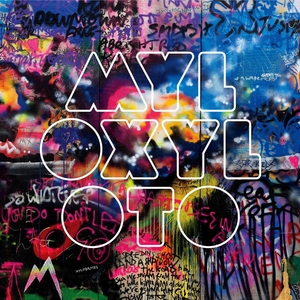A Letter Home proved to be not much more than a snapshot of an experiment, as Neil’s next real album was much more substantial.
Storytone was presented as an orchestral album with Neil’s voice and occasional harmonica, but also made available with a
Solo Storytone disc of Neil accompanying himself on piano or guitar. To confuse things even more, he went back to the editing suite to combine elements of the tracks for yet another permutation of the songs, called
Mixed Pages Of Storytone, so whichever is the “real” version remains up in the air.
In the orchestral setting his voice sounds more vulnerable than ever, bringing to mind recent Brian Wilson. The strings recall Comes A Time, and particularly the lonesome cowboy sweep of Prairie Wind, while even evoking Gordon Jenkins’ work with Frank Sinatra. The songs are presented as a suite, some seeming to follow on from the one before, whether she’s sleeping or he’s still driving.
“Plastic Flowers” recalls the piano version of “Living With War”; it’s unknown if giving the flowers of the title to Mother Nature’s daughter is supposed to be a good thing. “Who’s Gonna Stand Up?” is the one he likely hopes to will get the most attention. With its urgent riff and choir, it’s not as much of a departure. The end is overly melodramatic, ending with a “Day In The Life”-type stop and a surprise coda. The grumpy “I Want To Drive My Car” is more This Note’s For You than Fork In The Road, with a big-band backing and even an electric solo, probably courtesy of Waddy Wachtel. The joy of the open road doesn’t seem to pervade in “Glimmer”, where he’s left alone behind the wheel with only his thoughts and choked memories. Here’s a place where the Sinatra echo is most obvious, particularly when followed by “Say Hello To Chicago”, arranged in a style that will sound to most under-40 ears like Brian Setzer. Seeing as Neil doesn’t croon, it sounds very out of place.
“Tumbleweed” is more lush yet gentle, a lullaby suggesting the plant itself. “Like You Used To Do” is another Bluenotes cousin, a woman-done-me-wrong song, before the grand sweep of the final songs. Insisting that he’s not different from anyone else, “I’m Glad I Found You” offers a hushed, repeated ending in a naked love song. “When I Watch You Sleeping” sounds like it has a pedal steel, asking the unanswerable question as to how the late Ben Keith might have shaped this album. She’s still sleeping in “All Those Dreams”, while Neil rides off into the sunset, burning not a drop of gasoline.
The horn-driven blues songs break up any threat of monotony, but they don’t really fit in; in many ways the solo versions, each just as unique and just as considered as the arranged versions, allow the listener to get in deeper. “Plastic Flowers” and “I’m Glad I Found You” are pretty on the piano, “Who’s Gonna Stand Up?” stark, “Glimmer” less mournful. “I Want To Drive My Car” and “Like You Used To Do” are more subdued strums, and “Say Hello To Chicago” a boozy late-night reverie right off a Tom Waits album. “Tumbleweed” is given a ukulele arrangement similar to how Paul McCartney’s been playing “Something” of late. “When I Watch You Sleeping” and “All Those Dreams” finish things up, quiet and acoustic.
Coming so soon after the shocking revelation that he was divorcing Pegi (and taking up with Daryl Hannah), it’s not easy to keep the lyrics separate from diary entries. In fact, the mood and content of Storytone can be compared with Elvis Costello’s North, another love-lost-and-found album that divided listeners. Time will tell whether this will be a substantial chapter or just another tangent.
Neil Young Storytone (2014)—3
.jpg)


